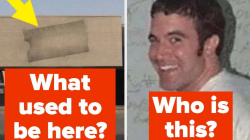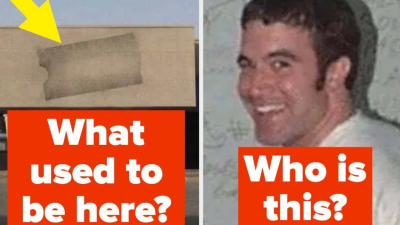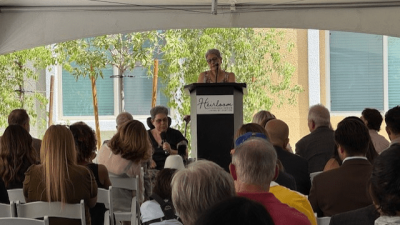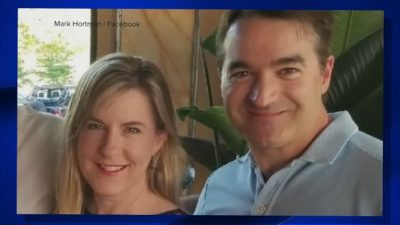A federal judge issued a blistering ruling Tuesday, finding Los Angeles officials failed in multiple ways to follow a settlement agreement to create more shelter for unhoused people.
Judge David O. Carter also ordered stronger oversight by a court-appointed monitor to “ask the hard questions on behalf of Angelenos,” as well as quarterly hearings to oversee compliance with the city’s commitments to create nearly 13,000 new shelter and housing beds.
“When the system fails, people die,” Carter wrote in his
62-page
ruling, which comes as a result of a major, long-running homelessness lawsuit filed by the L.A. Alliance for Human Rights, a group of downtown business and property owners.
“Nearly seven unhoused community members die each day in the County of Los Angeles,” the judge continued. “These deaths are preventable and represent a moral failure by all of us.”
The judge stopped short of the
most extreme option he was considering
: seizing control of the city’s hundreds of millions of dollars in homelessness spending and handing control to a court-appointed receiver.
Carter noted that appointing a receiver would be a last resort after a court has given multiple opportunities for the city to comply.
How the judge says the city breached the agreement
The court found that L.A. breached the settlement agreement with L.A. Alliance in four ways:
- The city did not provide a plan for how it intends to create 12,915 shelter beds, as promised, by June 2027.
- It consistently missed milestones over years for creating those beds.
- It incorrectly reported encampment reductions and disobeyed the court’s order on those actions.
-
The city “flouted” responsibilities by failing to provide accurate, comprehensive data when requested and did not provide evidence to support the
numbers it was reporting
.
The ruling comes after
days of court testimony
and
thousands of pages of documents
submitted to Carter on the issue.
What he’s ordering
The judge ordered stepped-up reviews by a court monitor to check for compliance with the settlement agreement in the case. The monitor “shall have full access to the data that the City uses to create its reports to the Court” to show compliance with the agreements, according to the ruling.
Carter also ordered the city and L.A. Alliance to attend in-person court hearings each quarter to review compliance, starting Nov. 12. The hearings will continue for as long as needed to make sure the city honors its commitments under the settlements, Carter ruled.
He wrote that these steps are progress, not punishment.
“The Court wants the City to succeed,” he wrote. “Because when the system fails, people die. And when it works — even slowly — lives are saved.”
Judge finds lack of accountability
Even so, Carter had harsh words for what he described as a glaring lack of accountability for how the city spends money on homeless services and housing.
“Unhoused individuals hear about programs and promises. They hear that hundreds of millions are being spent, that homelessness is being addressed, that success is being claimed,” Carter wrote. “Yet many still cannot find a bed, a bathroom, or a hot meal. Their lived reality does not match the headlines.”
He pointed to the difficulty faced by court-appointed reviewers,
and
, in getting data from the
L.A. Homeless Services Authority
— known as LAHSA — about how much was being spent for more than 2,000 housing subsidies the city was taking credit for to show compliance.
After LAHSA officials criticized ’s reporting of concerns about the data, Carter ordered the city to turn over addresses for each housing site. The city then acknowledged that the data was inflating the true number: 130 subsidies were being wrongfully counted twice.
“The evidentiary record reflects a consistent lack of cooperation and responsiveness — an unwillingness to provide documentation unless compelled by court order or media scrutiny,” the judge wrote.
“The pattern is clear: documentation is withheld until exposure is imminent, public accountability is resisted until judicially mandated, and the truth of reported progress remains clouded by evasive recordkeeping,” Carter wrote in his ruling. “These failures have undermined public trust and judicial trust alike.”
Carter added that the court-enforced agreements in the lawsuit — the L.A. Alliance settlement and an earlier agreement known as the Roadmap — were intended to be a turning point in the homelessness crisis. But, he wrote, there have been major problems with the city’s compliance.
“That neglect carries real consequences, borne most heavily by those with the least, by the people whose lives depend on those promises being fulfilled,” he wrote.
Referring to audits of the city’s homelessness spending, he added: “Taken together, these audits paint a consistent and deeply troubling picture of chronic operational failures in Los Angeles’ approach to homelessness.”
What do city leaders say about the ruling?
has reached out for comment from L.A. Mayor Karen Bass, City Attorney Heidi Feldstein Soto’s office and the chair of the City Council’s Housing and Homelessness Committee, Councilmember Nithya Raman.
We will update this story with comments if they’re provided.
Carter said it’s hard to trust the information coming from the city, and he noted the difficulties and the court’s reviewers faced in getting supporting data on homeless services.
“Without accurate data, the public is left to rely on the assurance of public officials who have already presided over repeated reporting failures,” the judge wrote.
“The City’s compliance rests on shaky ground, upheld not by verifiable facts, but by the last-minute declarations of its own officials,” he added. “If the Roadmap Agreement has taught us anything, it is that seeking accountability with the City of Los Angeles is like chasing the wind.”













